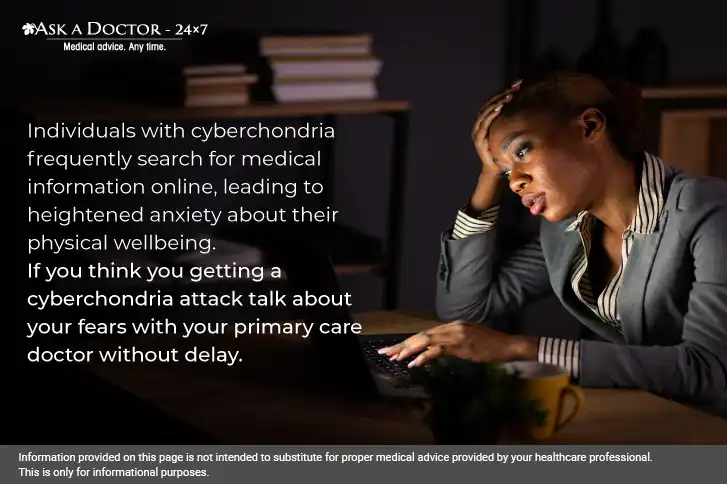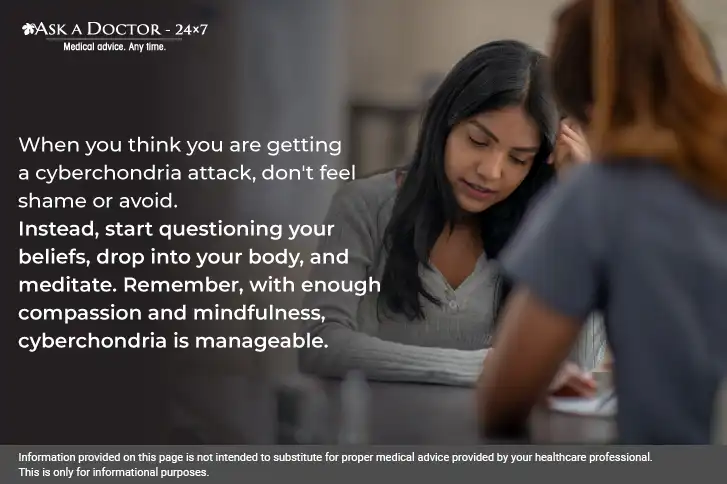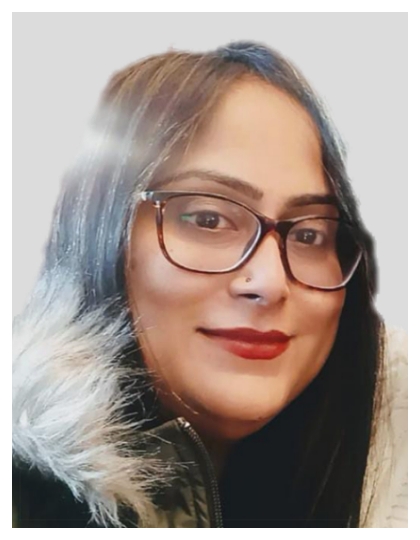Cyberchondria: How The Internet Can Affect Your Health!
Today when so much information is available just a click away, it gets very easy to search the web extensively for any health-related info. But, this online research for self-diagnosis may cost your mental and physical wellness. Yes, you read it right! Your online medical research may cause you an Internet-induced health anxiety called Cyberchondria.
Read here all about Cyberchondria and a few tips on how to deal with it.
5 FAQs About Cyberchondria Answered

We have answered the five most commonly asked questions to help you understand all about cyberchondria:
1. What is Cyberchondria?
Suppose you have intermittent nosebleeds and sit in front of your computer and search for the reasons. Although you won’t have the slightest chance of having leukemia, you may still find it as one of the reasons for such a diagnosis online. As a result, you may feel anxious about your health by getting worried about so many inter-linked things. This worrisome condition is called Cyberchondria.
2. How can the Internet cause Cyberchondria?
The Internet is a mixed bag of good and bad, right and wrong, and true and false. “Dandelion root kills 98% of cancer cells in 48 hours?”, was one of the most searched healthcare topics in 2016. What a huge cancer cure claim, ain’t it? Something that anybody with the ailment would want to try. However, the fact is that this blog mentions no medical evidence to support the treatment of cancer with the dandelion root. This is why it is said not to make Google a ‘Dr. Google’! Be rational and choose to believe only the right information.
3. Who Can Develop Cyberchondria?
Any individual who has experienced an emotional trauma, seen the death of a loved one, or any of his close ones has been afflicted with a serious illness, is more likely to suffer from Cyberchondria. Sometimes new mothers are also susceptible to developing this condition. Concerned for their newborns' wellbeing, they start looking online for every scrap of health information and tend to associate it with any negative information. This may trigger anxiety and begin the worry cycle in them, thus resulting in this condition.
People with general anxiety and depression are more likely to experience Cyberchondria. So if you get anxious by nature, then totally avoid finding any health-related information online.
4. How to Deal with Cyberchondria?
Since millennials cannot totally avoid the usage of computers and the Internet, they must learn to use it correctly and for an adequate time. The best way to handle your Internet-induced anxiety is to keep recalling the following:
- Google is not Dr. Google. It is not a substitute for real medical practitioners.
- Visit only trustworthy websites that give away reliable information.
- Discuss your health worries with a medical professional instead of a friend you met online.
- Do deep research before believing anything on the Internet. Validate the information source, its credibility, and the message conveyed.
5. What are the Treatment Options for Cyberchondria?
Cyberchondria can transform from a phenomenon condition into a devastating obsession. If you are prone to Internet-induced health anxiety, visit a healthcare professional. S/he could actually consider trying cognitive behavioral therapy to help you overcome the root cause of your anxiety.
Conclusion

Remember to take everything you read online with a pinch of salt! Maybe this is why it is called the ‘Web’—the more you allow yourself to get carried away, the more you will get tangled in it like a ‘spider web’, causing unfounded health worries. Better give yourself time to switch off to the real world and get the right answers to your queries from the real experts!
For any query related to anxiety and depression, you can consult a Psychiatrist online at Ask a Doctor 24x7.
Recently Answered Queries Related to Cyberchondria
- Is There Any Medical Intervention To Reduce The Health Impacts Of Air Pollution?
- Can You Analyze the Annual Health Assessment?
- Does Chronic Alcoholism Impact Cognitive Functioning?
- Gestational Diabetes Worries
- What Could Cause Eye Squishing And Tingling Sensation On the Face?
- Can Stress And Depression Cause Spotting?
- Suggest Remedy For Heavy Headedness
- Taken Wrong Medicine. Side Effects?
- Diagnosed With Anxiety Disorders. What Is The Cause?
- Is Anxiety Hereditary?
Disclaimer: Information provided on this page is not intended to substitute for proper medical advice provided by your healthcare professional. This is only for informational purposes.
Ask a Specialist
Recent Questions


